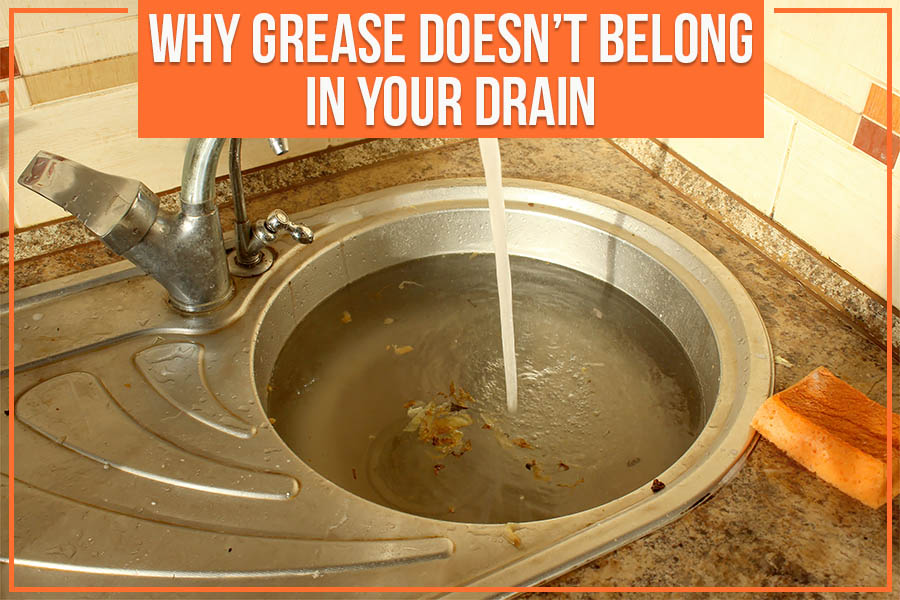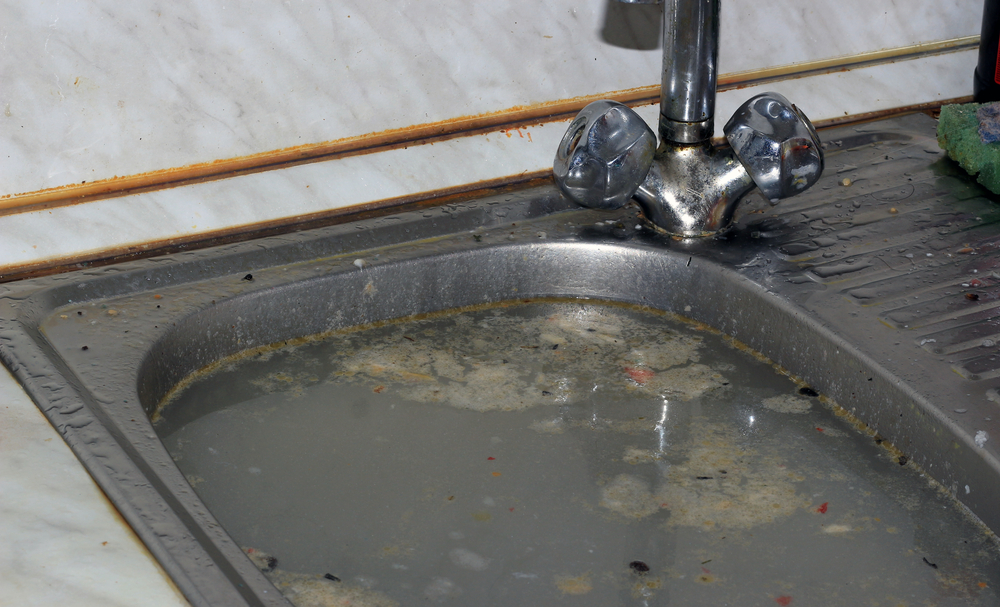
- Post author:admin
- Post published:October 27, 2022
- Post category:A Better Plumber Blog
Key Takeaways:
- Grease is one of the leading causes of clogged drains.
- When the grease cools, it hardens and can attach to the sides of your pipes, slowly accumulating over time and causing a blockage. It can also damage the environment.
- You can do a few things to help combat this problem: Pour hot water down the drain after each use, use a grease trap, and throw grease in the trash instead of down the drain.
Most people know the consequences of pouring grease down the drain. But despite how reasonable this may seem, plenty of people still send greasy gunk down their drains accidentally or otherwise. And while a bit of grease may not seem like a big deal, it can cause significant problems for your plumbing.
So today, A Better Plumber & Sewer will take a closer look at why grease should never be sent down the drain – and what you can do to avoid making this mistake.
Why Doesn’t Grease Belong in Your Drain?
Reason 01: Greasy Is Sticky
When it becomes heated, grease melts and becomes liquid. But grease doesn’t last very long when it’s liquid. It occupies considerably more space once it has cooled and solidified into a sticky solid. If you have a septic tank, the solid waste will fill the tank rather than discharge into your drainage field, necessitating more frequent cleanings.
Reason 02: Grease Can Cause Serious Clogs
When grease enters your sewer line, it will eventually cool and congeal. As more grease enters the sewer line, it will build up on the pipe’s walls. This build-up can narrow the diameter of the pipe, causing a clog. Clogged sewer lines can cause sewage to back into your home through the drains, which can cause serious health hazards.
Reason 03: Grease Can Create a Foul Smell in Your Home
When grease builds up in your sewer line, it can cause a foul smell to permeate your home. This is because the build-up of grease can trap other waste products, which can then decompose and produce a foul odor.
Reason 04: High Temperatures Create Problems
Pipes, especially plastic pipes, have a limited heat tolerance. High heat can harm the plastic pipes, leading to leaks. Grease shouldn’t be poured down the drain at any time, especially not just after you remove it from the burner. Most plastic pipes cannot withstand temperatures over 140 to 200 degrees, while frying grease can reach temperatures 300 degrees or more. Even worse, oil has a propensity to hold onto heat for an extended period before it begins to cool.
Reason 05: Environmental Issues
As mentioned, grease can lead to clogs. And as we all know, clogs eventually lead to overflows. When this happens, the water filled with grease and waste from your drain enters our waterways. This can harm the environment, killing marine life and disrupting the delicate ecosystem.
How Can You Overcome This Problem?
Stop Pouring Grease Down the Drain:
Since residential sources account for 88% of grease-related sanitary sewage overflows, it’s time to stop adding to global sewer problems. Simply stopping to pour grease down the drain is the first step in restoring health to drains. Grease disposal in the garbage can be done in only a few minutes.
If you must get rid of it immediately, run cold water over the grease in the pan before pouring it down the sink. This won’t completely solidify the grease, but it will help to cool it down and make it less likely to adhere to your pipes.
Put The Grease in A Bottle or Can:
A better alternative is to either bottle it or pour it into an empty container to throw it in the garbage. You should use a container with a cover to retain the grease. Spilling grease or oil into the trash might cause it to inadvertently flow into the sewage, defeating the purpose of maintaining clean and hygienic plumbing and sewer systems.
Wipe Down Your Pots and Pans with A Paper Towel:
When you’re finished cooking, take a paper towel and wipe your pots and pans. This will help absorb any grease that might have splattered while cooking and keeps it from going down the drain.
Install a Grease Trap:
Install a grease trap if you have a septic system or cannot dispose of grease in the trash. A grease trap is placed between the sink and the drain, and it works by holding onto the grease so that it doesn’t enter the drain. There are different size grease traps available for commercial and home use, so find one that will suit your needs.
Maintain Your Drains by Using DIY:
Make sure to regularly clean your drains, whether using a store-bought drain cleaner or making your own. Pour half-cup of the vinegar and half a cup of caustic or baking soda down the drain. After 30 minutes, flush the mixture with hot water. You can also use a plunger to break up any clogs.
If you have a grease clog, pour a pot of boiling water down the drain, followed by a cup of baking soda. After an hour, flush with hot water. You can also use this method to prevent clogs from forming in the first place.

Ask Professionals for Help:
It could be time to call the professional plumber for help if you’ve tried the abovementioned techniques and nothing appears to be working. Plumbers can use a drain snake or hydro jet to clear the gutter clog.
Hydro jetting is a safe, effective and professional way to remove grease, sludge, and other debris from your pipes. A professional plumber can also help you find the problem’s source and ensure it doesn’t happen again.
Final Thought:
Grease doesn’t belong in your drain! It can cause serious clogs that are difficult to remove. Clean your drains regularly and take steps to prevent grease from going down the drain in the first place. If you have a stubborn clog, ask a professional for help.
Already poured grease down the drain? Don’t worry! A Better Plumber and Sewer Company Inc., serving Arlington Heights, IL, can help. We can quickly clean your pipes with our hydro-jetting service. Our jetting service will assist you in getting rid of everything clogging your pipes, thus saving you time and money.







